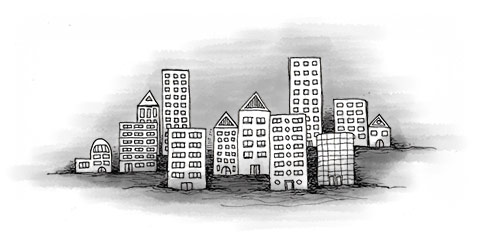Registration: You normally register for electricity, gas and water at your local company ( städtische Werke). In many cases, your landlord will do the registration for you, but you’re often required to pay a deposit of up to CHF 250.
Electricity, gas and water are either billed separately or together. The calculation is normally done every quarter, with meters being read every six months. During your first quarter, you may therefore be billed on estimated usage.
Water: Water costs are either determined individually depending on usage and the charges are levied with the rent. Water in Switzerland is generally hard, but there are a number of filter systems available to reduce or eliminate the calcium ( Kalk) that builds up on heating elements and in pots and pans.
Electricity: In Switzerland, the current comes out of the socket at 220 volts and 50 Hz AC. Note that there are three different types of plugs in use with 2, 3 or 5 contacts. You are therefore likely to need adapters.
Heating: Most flats in Switzerland have central heating ( Zentralheizung/ chauffage central). The heating is normally turned off in warmer months.
Garbage disposal: In many Swiss regions you have to dispose your garbage in special ‘official’ garbage bags that are sold at CHF 2-6 per unit. If you dispose your garbage in a normal bag, the ‘garbage detective’ will find you and you will have to pay a penalty of some CHF 100. Remember: you’re in Switzerland!
Garbage separation: Due to increasing concern for the environment, it is common in Switzerland to sort rubbish into different types for recycling, instead of throwing it all in the same bin. There are normally several different bins in each apartment block. Separation is followed strictly by the Swiss and it can often be enforced by law.
Chemicals: Garbage with chemicals and poisons (i.e. batteries, motor oil, etc.) is not allowed to be disposed of in normal bins. There are special depots for this kind of garbage in Switzerland.
Old furniture and large electrical goods are classified as Sperrmüll (bulky waste) and are picked up by your local garbage disposal firm on special dates.
Old shoes and clothes can often be disposed of in large containers in towns and cities across Switzerland. Several times a year the Red Cross and other organisations call on citizens to dispose of their old clothes and donate them to charity. You can find addresses in the Yellow Pages or at your post office.


